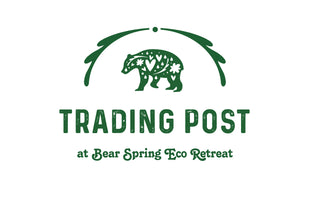Why Do People Litter?!

I regularly take walks in the forest and ride my bicycle along country roads and everywhere I go, I encounter litter. The constant sight of it is a continual source of disappointment. I have noticed that there is less where motorized transport can’t go yet, there is still some. Why is this?
Studies have actually been conducted to answer that question and they’ve found that the answer generally boils down to four main reasons: laziness or carelessness, lack of access to trash receptacles, lenient law enforcement and the presence of litter already in the area. But, I think the reason goes much deeper than this. I believe it is a profound lack of connection to community and the natural environments that they’re a part of.
With our colonial world view, we generally only care for and respect things we own. We take care of our cars and homes and even our yards but don’t really think much about the environment in which we live and depend on because we don’t own it. However, we do care about things outside ownership when we feel connected to it or feel a sense of belonging to it. Belonging to a church or a gardening club would be good examples. We respect and care for church buildings and garden plots because we feel a sense of belonging and connection to them.
In contrast, “First Nations have had an intricate, respectful, spiritually and physically dependent, grateful, and protective tie to the land. The nature of this tie is not so much one of ownership but one of stewardship. They feel they have been bestowed with a responsibility.” With such a deep sense of belonging, and ultimately connection, it would be very difficult to not care and feel responsible for the natural environment around you.
It is this disconnection that I believe makes it possible for people to simply not care and litter. Sure, it may be possible to curb some of it by adding trash cans everywhere and using more enforcement but these are only band aid solutions. They don’t really address the source of the problem. The problem is that people who litter do not feel any sense of connection to the environment they are trashing. It’s of no concern to them.
The solution is figuring out how to create a sense of connection and belonging to your community so that no one feels left out and everyone starts caring. If you really think about it, you start to see the disconnections everywhere. These disconnections come with serious consequences, not the least of which is excess litter everywhere.
I think we really need to focus on building resilient communities, dissolving inequity and creating a sense of belonging in order to end littering once and for all. We must remind ourselves that we are all dependent on the natural environment for survival, regardless of which parts we might own on paper. We are also connected to each other whether we like it or not. There is nothing we do that doesn’t influence some other part of our planet.
Americans reported that between 2002 and 2020, time spent with friends and social engagements have decreased by two-thirds and one-third while time spend feeling isolated increased by 17 percent. A whopping 50% now report feeling lonely! Other forms of civic participation are down too. Too many are feeling overwhelmed by work and affording basic needs such as food and shelter are becoming more difficult. This is not just an American problem, it’s happening here in Canada too. Our lovely little city of Nelson is struggling with a serious lack of housing. Has anyone noticed just how much trash homelessness creates? Not to mention how divided residents have become on these issues? We’re living in a hyper-individualistic society now and it shows.
We spend more time indoors than ever before and if we do venture outside we usually get there in a car. We don’t really spend time getting to know our neighbours anymore and we purchase imported products made in faraway places to fill our needs. We don’t even know the people who grow our food. Only about 5% of produce is grown by local farmers in the Kootenay region. We drive our kids to school. We don’t let them walk or bike. There are fewer and fewer opportunities to make connections to both the people living around us and the natural environment in which we live. We lock our doors because we fear the other. We participate in endless echo chambers on social media justifying our indifference. We’ve become too individualistic. But, this all needs to change if we want to have a healthy community and clean environment.
As Chayenne Polimédio writes “It’s high time, then, to interrogate this modern notion of the individual as unencumbered and self-driven—largely removed from all attachments.” Chayenne suggests we should shift our thinking back to what an inclusive community is. She says “an individual who’s part of a community expresses her identity via feelings of belonging and responsibility toward her fellow community members and their well-being”. It’s this sense of responsibility to the other that will help us curb litter once and for all.
Some simple things we can do to help are walk your children to school, get to know your neighbours better, plant something in your yard, take stock of what birds or other animals you see living in the nearest park. When you see someone litter, understand that they must feel a terrible sense of isolation or disconnection. Reach out and help them see that they are not alone. Help them understand that their actions, positive or negative, make a difference in our world. Help them to understand that whatever harm we cause to the world, we also do to ourselves. Throwing trash out your car window is no different than dumping it on your living room floor. We’re all stuck here together on this planet. We’re all connected. We have nothing without each other and all the other living and non-living things in our world.


Leave a comment